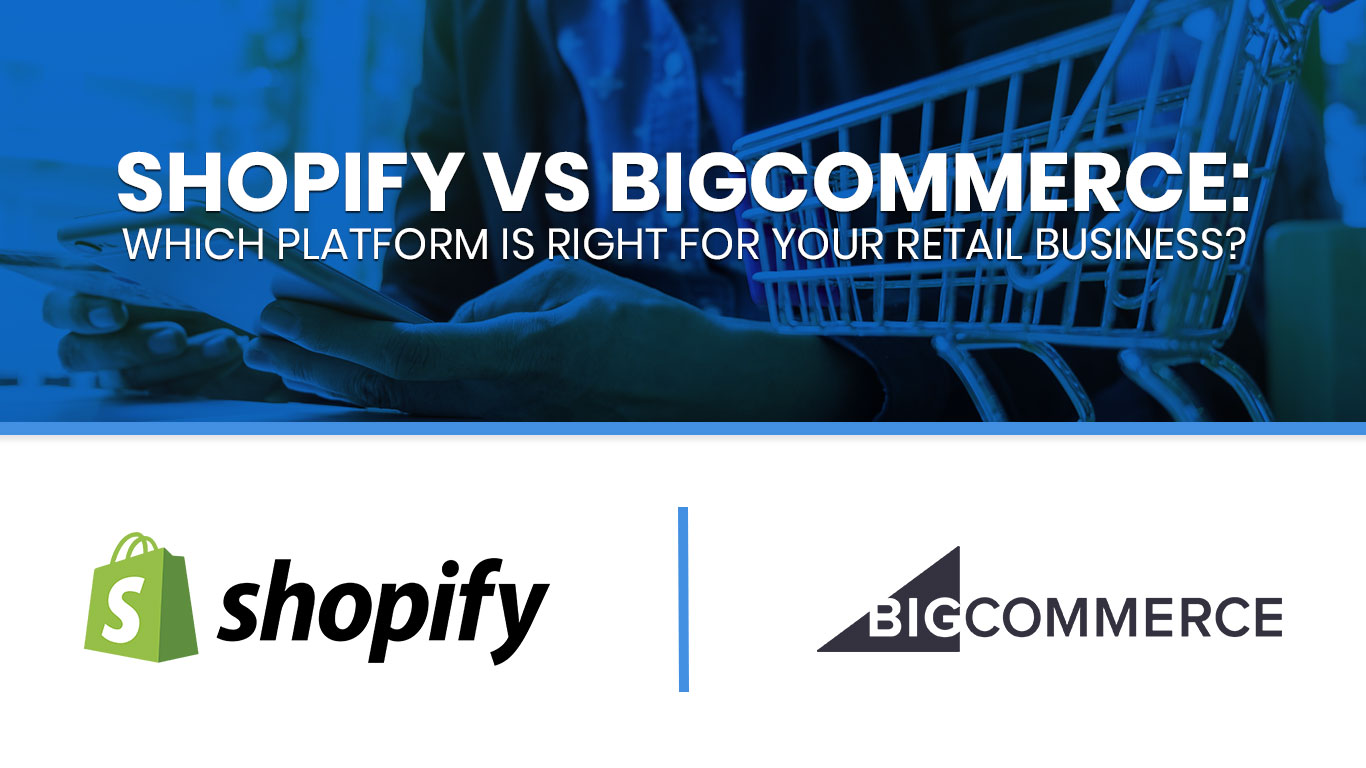Choosing the best eCommerce platform is critical for your business’s success. Shopify and BigCommerce are two top contenders, each offering powerful tools for online retail. While both excel in many areas, their differences can significantly influence your decision. This guide compares Shopify and BigCommerce across Scalability, Performance, Customizability, Integrability, Cost, and more to help you make an informed choice.
Scalability
Shopify
- API Call Limits: 40 calls/second (Plus) and 4 calls/second (other plans).
- SKU Management: Up to 100 SKUs per product.
- Traffic Handling: Handles spikes but may require apps or Shopify Plus for advanced scaling.
- Product Options: Limited to 3 options (e.g., size, color, material).
BigCommerce
- API Call Limits: 60 calls/second across all plans.
- SKU Management: Up to 600 SKUs per product.
- Traffic Handling: Flexible architecture manages high traffic seamlessly.
- Product Options: Up to 250 options per product.
Verdict: BigCommerce offers greater scalability, making it ideal for businesses with complex inventories and high traffic needs.
Performance
Shopify
- Page Load Speed: Median 1.3 seconds.
- Hosting: Proprietary hosting with 99.99% uptime.
- CDN: Fastly-powered CDN.
- Mobile Optimization: Mobile-first themes.
BigCommerce
- Page Load Speed: Median 1.2 seconds.
- Hosting: SaaS with Google Cloud infrastructure.
- CDN: Akamai-powered CDN.
- Mobile Optimization: AMP support for faster mobile pages.
Verdict: Both platforms perform well, but BigCommerce’s AMP support enhances mobile experiences, especially in mobile-first markets.
Customizability
Shopify
- Themes: 120+ themes (free and paid); Liquid templating required for customizations.
- App Dependency: Heavy reliance on third-party apps.
BigCommerce
- Themes: 150+ themes; uses Stencil framework with open HTML, CSS, and JavaScript access.
- Built-in Features: Advanced promotions, faceted search, and SEO tools included.
Verdict: BigCommerce reduces app dependency with more built-in features and easier customization options.
Integrability
Shopify
- App Marketplace: 8,000+ apps for diverse integrations.
- 3rd Party Systems: Seamless with ERP, CRM, and POS.
- APIs: Comprehensive but with stricter limits.
BigCommerce
- App Marketplace: 1,000 apps focusing on quality over quantity.
- 3rd Party Systems: Robust native integrations (e.g., NetSuite, HubSpot).
- APIs: Flexible with high call limits for real-time operations.
Verdict: Shopify has a wider app ecosystem, but BigCommerce excels in native integrations and API flexibility.
Cost
Shopify
- Plans: $39–$399/month (+ custom Plus pricing).
- Transaction Fees: 2.9% + $0.30 (reduced with Shopify Payments).
BigCommerce
- Plans: $39–$399/month (+ custom Enterprise pricing).
- Transaction Fees: None; only payment processor fees.
Verdict: BigCommerce is more cost-effective for scaling businesses, saving significantly on transaction fees.
Conclusion
Choose Shopify for its user-friendly interface, vast app ecosystem, and seamless POS integration.
Choose BigCommerce for greater scalability, built-in features, and cost savings for high-volume businesses.



